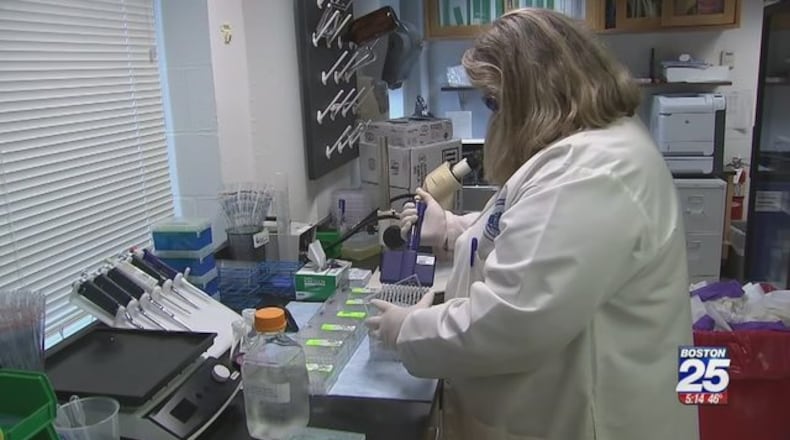Researchers at Massachusetts General Hospital have made a groundbreaking discovery that could ease symptoms for millions of people suffering from conditions such as chronic fatigue, fibromyalgia and irritable bowel syndrome.
Dr. Anne Louise Oaklander said a good proportion of patients diagnosed with those health issues may actually have a disease called small fiber polyneuropathy, or SFPN.
This is a disorder in which nerve cells found under the skin are attacked by the body's immune system.
The resulting damage can cause numerous symptoms, including gastrointestinal discomfort and feeling like the skin is on fire.
“The problem is their skin looks perfectly normal, and there's no evidence that anything's wrong,” Oaklander said.
Along with others, Oaklander recently published a study in which they found that drugs called immunomodulators can be effectively used to treat SFPN, though these drugs may not work in every patient because every presentation of the disorder is different.
She said patients who learn they have SFPN often feel liberated.
“It's pretty routine that I have patients who break down and cry when they get an answer for the first time to something that's been disabling them for years or decades,” Oaklander said.
One of those patients is MaryEllen Talbot, who had initially been diagnosed with fibromyalgia before learning she actually has SFPN.
“This diagnosis is from a biopsy, so it's not subjective, it's objective. It's something they see on the lab,” she said.
Talbot isn’t alone. Because of the varying symptoms from case to case, Oaklander said the number of people with SFPN could be huge.
“Maybe it's tens of millions of people around the world who have it, maybe it's hundreds of millions of people, but either way this is not a rare disease,” she said.
About the Author
Keep Reading
The Latest
Featured



